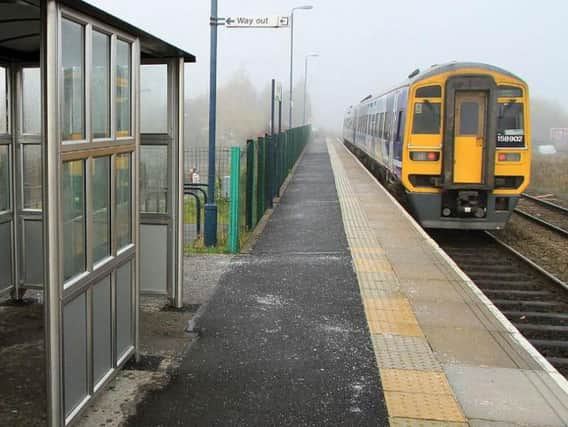Yorkshire's rail services are performing better - but are still less reliable than a year ago


Northern and TransPennine Express have seen improvement in the number of trains arriving on time as well as cancellations and short-formed trains in the last month. But rail bosses admit this will have be sustained for passenger confidence to be improved.
It comes as the northern rail trouble-shooter, former London Olympics director of transport Richard George, presents a report today about how to tackle long-standing problems on the railways.
Advertisement
Hide AdAdvertisement
Hide AdThe leading rail consultant will tell political and business leaders at a meeting of Transport for the North in Chester this morning that northern railways are much busier than they used to be and in future will need spare capacity to operate as well as greater maintenance.
Mr George was appointed in the aftermath of the botched introduction of a new timetable by Northern, which resulted in widespread delays and disruption across the North and cost the economy an estimated £38m.
But a report prepared for today’s TfN meeting highlights “a noticeable and welcome improvement in reliability” since a revised timetable was launched in December.
Advertisement
Hide AdAdvertisement
Hide AdThe ‘PPM’ figure, the percentage of trains which ran their entire planned journey calling at all scheduled stations and arriving at their terminating station within five minutes of their timetable, was at 88.5 per cent for Northern between December 28 and January 24.
This compares favourably with the 78 per cent between May 20, the first day of the timetable chaos, and December 9, but is still below the 90.7 per cent figure for last January.
The number of unplanned cancellations have fallen from 57 a day to 22 a day in the same period, while the average number of short-formed trains has fallen from 22 a day to 10 a day.
According to TfN: “The improving figures reflect the increased availability of rolling stock and reduction in autumn conditions accompanying the start of the December 2018 timetable.”
Advertisement
Hide AdAdvertisement
Hide AdTransPennine Express’s performance has also improved, with its PPM averaging 88.2 per cent between December 28 and January 24 compared with 69.8 per cent between May 20 and December 9.
Cancelled or part-cancelled trains were at 39 per day for the operator after the May timetable change, but since December the average has fallen to 11.5 per cent.
The TfN report says: “There has been a noticeable and welcome improvement in reliability following the introduction of the revised timetable in December, which was designed by the industry to improve the resilience of services.
“This improvement needs to be continued on a sustained basis in order to rebuild passenger confidence in the service being provided.”
Advertisement
Hide AdAdvertisement
Hide AdAccording to the report TfN is involved in two projects, led by the Department for Transport, to “resolve the current problems of severe congestion in central Manchester and Leeds”. Part of this is identifying what infrastructure is needed for services to run reliably.